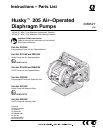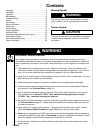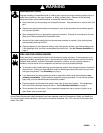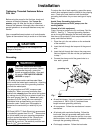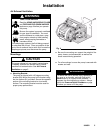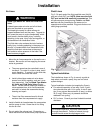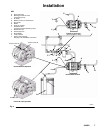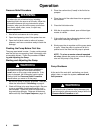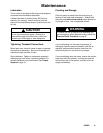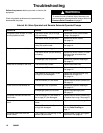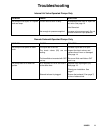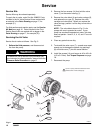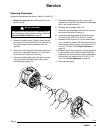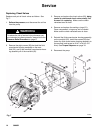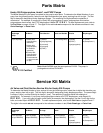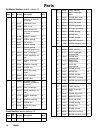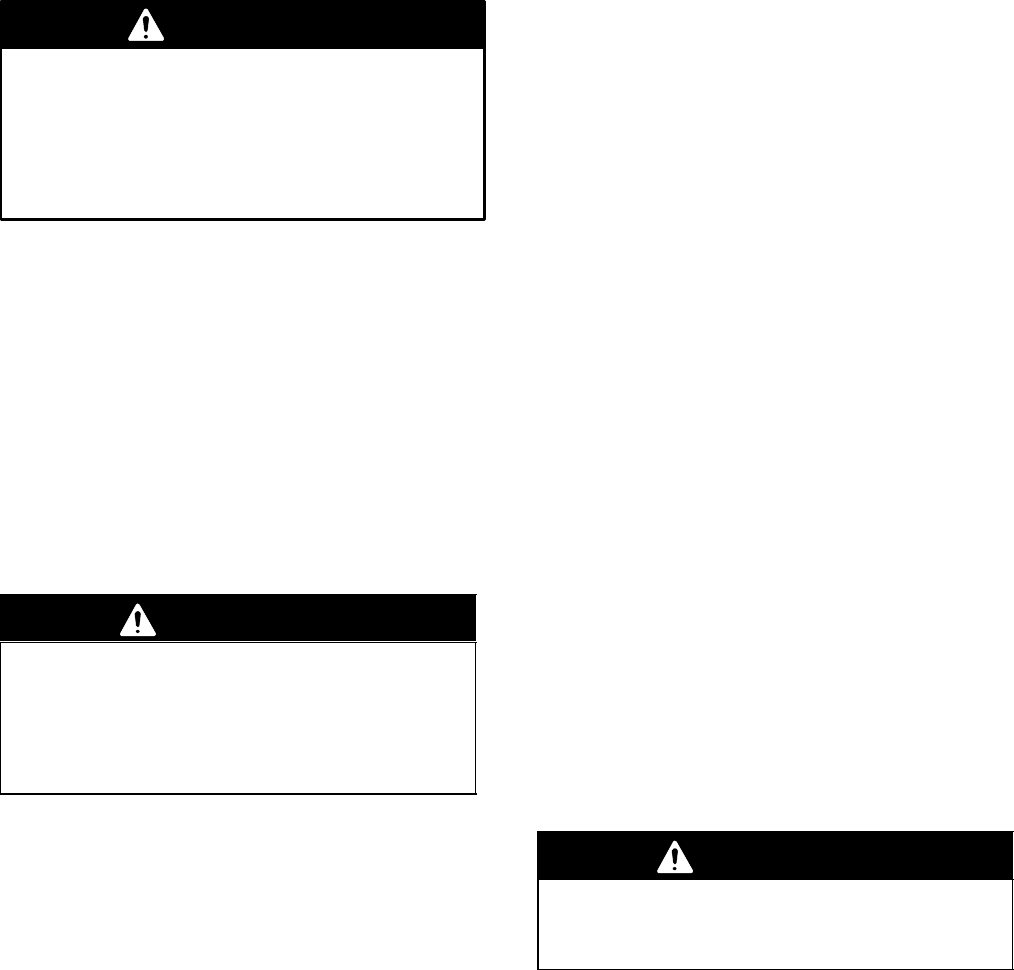
8 308652
Operation
Pressure Relief Procedure
WARNING
To reduce the risk of serious injury, including
splashing fluid in the eyes or on the skin, follow this
procedure whenever you are instructed to relieve
pressure, when you shut off the pump, and before
you check, adjust, clean, move, or repair any
system equipment.
1. Shut off air and reserve air to the pump.
2. Open the dispensing valve if the system has one.
3. Open the fluid drain valve to relieve all system
pressure, and have a container ready to catch the
drainage.
Flushing the Pump Before First Use
The pump was tested in water. If water could contami-
nate the fluid you are pumping, flush it thoroughly with
a compatible solvent. Follow the procedure in Start-
ing and Adjusting the Pump.
Starting and Adjusting the Pump
WARNING
To reduce the risk of serious injury, splashing in
the eyes or on the skin, and toxic fluid spills,
never move or lift a pump under pressure. If the
pump is dropped, the fluid section could rupture.
Always follow the Pressure Relief Procedure
above before you move or lift the pump.
1. Be sure the pump is properly grounded. Read and
follow the instructions in Grounding on page 4.
2. Check all fittings to be sure they are tight. Be sure
to use a compatible liquid thread sealant on all
male threads. Tighten the fluid inlet and outlet fit-
tings and plugs securely. Retorque all fasteners
before start-up. See Torque Sequence, page 18.
3. Place the suction tube (if used) in the fluid to be
pumped.
4. Place the end of the outlet hose into an appropri-
ate container.
5. Close the fluid drain valve.
6. With the air regulator closed, open all bleed-type
master air valves.
7. If the outlet hose has a dispensing device, hold it
open while continuing with step 8.
8. Slowly open the air regulator until the pump starts
to cycle. Allow the pump to cycle until all air is
pushed out of the lines and the pump is primed.
NOTE: To prime a remote solenoid-operated
air valve, operate the pump at a minimum 60 cpm
rate until the pump is fully primed.
Pump Shutdown
At the end of the work shift, and before you check,
adjust, clean, or repair the system, relieve air and
fluid pressure.
WARNING
To reduce the risk of serious injury whenever you
are instructed to relieve pressure, always follow the
Pressure Relief Procedure at left.



